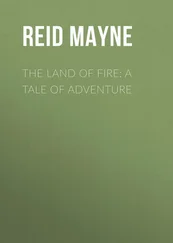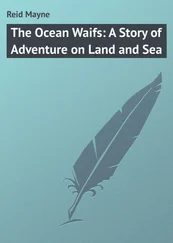Mayne Reid - Popular Adventure Tales
Здесь есть возможность читать онлайн «Mayne Reid - Popular Adventure Tales» — ознакомительный отрывок электронной книги совершенно бесплатно, а после прочтения отрывка купить полную версию. В некоторых случаях можно слушать аудио, скачать через торрент в формате fb2 и присутствует краткое содержание. Жанр: literature_19, foreign_antique, foreign_prose, foreign_children, на английском языке. Описание произведения, (предисловие) а так же отзывы посетителей доступны на портале библиотеки ЛибКат.
- Название:Popular Adventure Tales
- Автор:
- Жанр:
- Год:неизвестен
- ISBN:нет данных
- Рейтинг книги:3 / 5. Голосов: 1
-
Избранное:Добавить в избранное
- Отзывы:
-
Ваша оценка:
- 60
- 1
- 2
- 3
- 4
- 5
Popular Adventure Tales: краткое содержание, описание и аннотация
Предлагаем к чтению аннотацию, описание, краткое содержание или предисловие (зависит от того, что написал сам автор книги «Popular Adventure Tales»). Если вы не нашли необходимую информацию о книге — напишите в комментариях, мы постараемся отыскать её.
Popular Adventure Tales — читать онлайн ознакомительный отрывок
Ниже представлен текст книги, разбитый по страницам. Система сохранения места последней прочитанной страницы, позволяет с удобством читать онлайн бесплатно книгу «Popular Adventure Tales», без необходимости каждый раз заново искать на чём Вы остановились. Поставьте закладку, и сможете в любой момент перейти на страницу, на которой закончили чтение.
Интервал:
Закладка:
Mayne Reid
Popular Adventure Tales
BIOGRAPHICAL SKETCH
Captain Mayne Reid was born at Ballyroney, County Down, on the 4th April, 1818, and was the son of the Rev. Thomas Mayne Reid. Mayne Reid was educated with a view to the Church, but finding his inclinations opposed to this calling, he emigrated to America and arrived in New Orleans on January, 1840. After a varied career as plantation over-seer, school-master, and actor, with a number of expeditions in connection with hunting and Indian warfare, he settled down in 1843 as a journalist in Philadelphia, where he made the acquaintance of Edgar Allan Poe.
Leaving Philadelphia in 1846, he spent the summer at Newport, Rhode Island, as the correspondent of the New York Herald , and in December of the same year, having obtained a commission as second lieutenant in the 1st New York Volunteers, he sailed for Vera Cruz to take part in the Mexican war. He behaved with conspicuous gallantry in many engagements, and was severely wounded and disabled at the storming of Chapultepec on the 13th September, 1847.
Returning to the United States in the spring of 1848, he resumed literary work. But in June, 1849, he sailed for Europe in order to take part in the revolutionary movements going on in Hungary and Bavaria, arriving however too late, he turned his attention again to literature, and in London in 1850, published his first novel “The Rifle Rangers,” in two volumes. Between this date and his death, he produced a large number of volumes, which indeed no one else was capable of writing, for in them are avowedly embodied the observations and experiences of his own extraordinary career.
Unfortunate building and journalistic speculation and enterprises involved him in financial failure, so he returned to New York in October, 1867. There he founded and conducted The Onward Magazine , but owing to recurring bad effects of his old Mexican wound, he had to abandon work for sometime and go into the hospital, on leaving which he returned to England in 1870. During the later years of his life he resided at Ross in Herefordshire where he died on the 22nd October, 1883, and was buried in Kensal Green Cemetery.
Mayne Reid wrote in all thirty-five works, chiefly books of adventure and travel. As in the case of all authors, the books vary much in merit, but most of them are of a high order in their own department of literature. Many of them have been extraordinary popular and have become standard works. Reid has not been surpassed by any other writer in combining at one and the same time, the features of thrilling adventure and great instruction in the fields of natural history. Many of the works have been translated into Continental languages and are as highly esteemed among the French and Germans as at home.
Popular Adventure Tales
CHAPTER I
THE FUR COUNTRIES
Boy reader, you have heard of the Hudson's Bay Company? Ten to one you have worn a piece of fur which it has provided for you; if not, your pretty little sister has – in her muff, or her boa, or as a trimming for her winter dress. Would you like to know something of the country whence come these furs? – of the animals whose backs have been stripped to obtain them? As I feel certain that you and I are old friends, I make bold to answer for you – yes. Come, then! let us journey together to the “Fur Countries;” let us cross them from south to north.
A vast journey it will be. It will cost us many thousand miles of travel. We shall find neither railway-train, nor steamboat, nor stagecoach, to carry us on our way. We shall not even have the help of a horse. For us no hotel shall spread its luxurious board; no road-side inn shall hang out its inviting sign and “clean beds;” no roof of any kind shall offer us its hospitable shelter. Our table shall be a rock, a log, or the earth itself; our lodging a tent; and our bed the skin of a wild beast. Such are the best accommodations we can expect upon our journey. Are you still ready to undertake it? Does the prospect not deter you?
No – I hear you exclaim – I shall be satisfied with the table – what care I for mahogany? With the lodging – I can tent like an Arab. With the bed – fling feathers to the wind!
Enough, brave boy! you shall go with me to the wild regions of the “North-west,” to the far “fur countries” of America. But, first – a word about the land through which we are going to travel.
Take down your atlas. Bend your eye upon the map of North America. Note two large islands – one upon the right side, Newfoundland; another upon the left, Vancouver. Draw a line from one to the other; it will nearly bisect the continent. North of that line you behold a vast territory. How vast? You may take your scissors, and clip fifty Englands out of it! There are lakes there in which you might drown England, or make an island of it! Now, you may form some idea of the vastness of that region known as the “fur countries.”
Will you believe me, when I tell you that all this immense tract is a wilderness – a howling wilderness, if you like a poetical name? It is even so. From north to south, from ocean to ocean – throughout all that vast domain, there is neither town nor village – hardly anything that can be dignified with the name of “settlement.” The only signs of civilisation to be seen are the “forts,” or trading posts of the Hudson's Bay Company; and these “signs” are few and far – hundreds of miles – between.
For inhabitants, the country has less than ten thousand white men, the employés of the Company; and its native people are Indians of many tribes, living far apart, few in numbers, subsisting by the chase, and half starving for at least a third part of every year! In truth, the territory can hardly be called “inhabited.” There is not a man to every ten miles; and in many parts of it you may travel hundreds of miles without seeing a face, red, white, or black!
The physical aspect is, therefore, entirely wild. It is very different in different parts of the territory. One tract is peculiar. It has been long known as the “Barren Grounds.” It is a tract of vast extent. It lies north-west from the shores of Hudson's Bay, extending nearly to the Mackenzie River. Its rocks are primitive . It is a land of hills and valleys – of deep dark lakes and sharp-running streams. It is a woodless region. No timber is found there that deserves the name. No trees but glandular dwarf birches, willows, and black spruce, small and stunted. Even these only grow in isolated valleys. More generally the surface is covered with coarse sand – the debris of granite or quartz-rock – upon which no vegetable, save the lichen or the moss, can find life and nourishment.
In one respect these “Barren Grounds” are unlike the deserts of Africa: they are well watered. In almost every valley there is a lake; and though many of these are land-locked, yet do they contain fish of several species. Sometimes these lakes communicate with each other by means of rapid and turbulent streams passing through narrow gorges; and lines of those connected lakes form the great rivers of the district.
Such is a large portion of the Hudson's Bay territory. Most of the extensive peninsula of Labrador partakes of a similar character; and there are other like tracts west of the Rocky Mountain range in the “Russian possessions.”
Yet these “Barren Grounds” have their denizens. Nature has formed animals that delight to dwell there, and that are never found in more fertile regions. Two ruminating creatures find sustenance upon the mosses and lichens that cover their cold rocks: they are the caribou (reindeer) and the musk-ox. These, in their turn, become the food and subsistence of preying creatures. The wolf, in all its varieties of grey, black, white, pied, and dusky, follows upon their trail. The “brown bear” – a large species, nearly resembling the “grizzly” – is found only in the Barren Grounds; and the great “Polar bear” comes within their borders, but the latter is a dweller upon their shores alone, and finds his food among the finny tribes of the seas that surround them. In marshy ponds, existing here and there, the musk-rat builds his house, like that of his larger cousin, the beaver. Upon the water sedge he finds subsistence; but his natural enemy, the wolverene, skulks in the same neighbourhood.
Читать дальшеИнтервал:
Закладка:
Похожие книги на «Popular Adventure Tales»
Представляем Вашему вниманию похожие книги на «Popular Adventure Tales» списком для выбора. Мы отобрали схожую по названию и смыслу литературу в надежде предоставить читателям больше вариантов отыскать новые, интересные, ещё непрочитанные произведения.
Обсуждение, отзывы о книге «Popular Adventure Tales» и просто собственные мнения читателей. Оставьте ваши комментарии, напишите, что Вы думаете о произведении, его смысле или главных героях. Укажите что конкретно понравилось, а что нет, и почему Вы так считаете.












